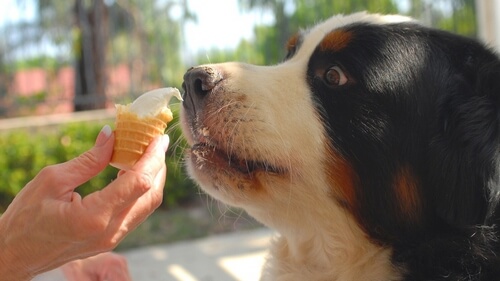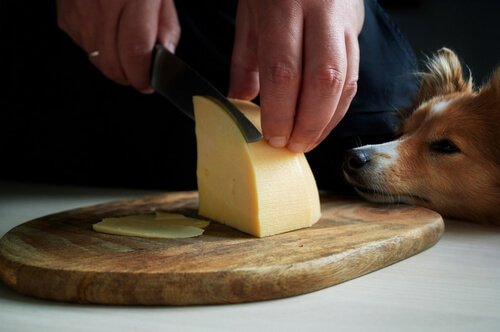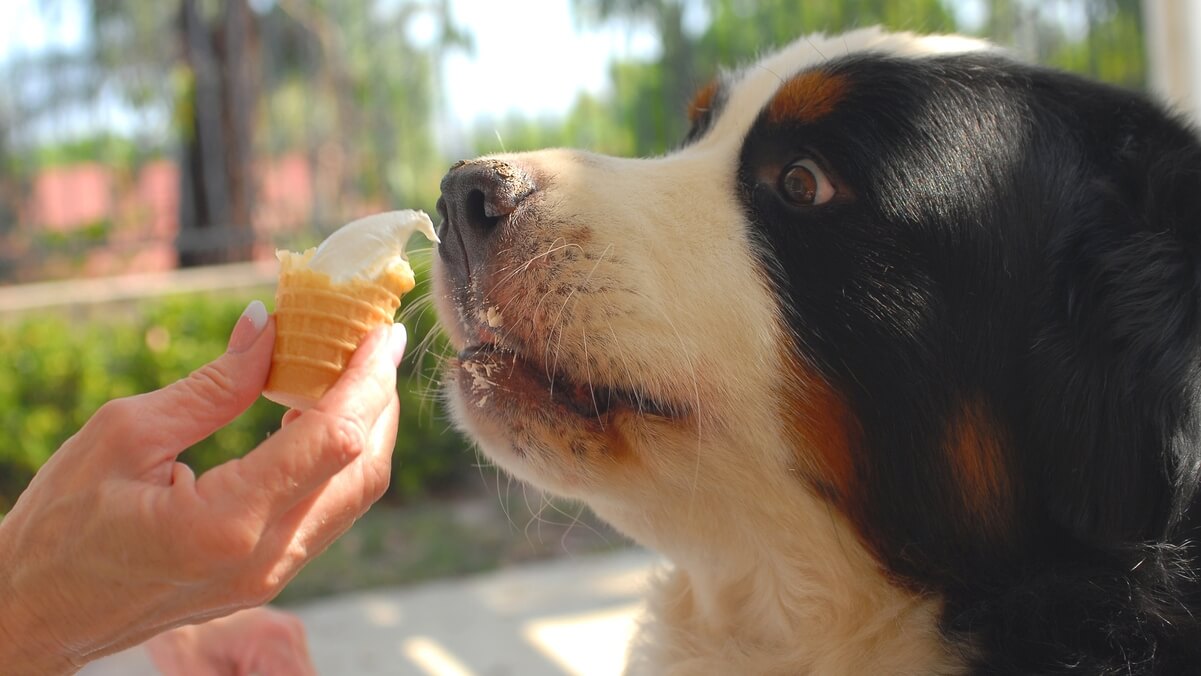Can Dogs Eat Cheese and Ice Cream?

Are Cheese and Ice Cream Safe for Dogs?
Some dogs have no problem eating cheese, ice cream or any other dairy product.
While others experience acute digestive upset…
Such as gas, bloating, vomiting or diarrhea, whenever they eat these common people foods.
That’s because…
How a dog responds to dairy products depends on the animal’s ability to digest a specific nutrient found in milk.
A nutrient known as lactose.
What Is Lactose?
Lactose is a type of sugar. One consisting of 2 sugar molecules that are tightly linked to each other.
Here’s the problem…
In order for a dog to SAFELY consume dairy products…
The lactose these foods contain must first be split into TWO digestible sugar molecules.
But to do that…
The animal must be able to produce its own lactase… a natural enzyme that can split lactose into two easy-to-digest sugars.
However…
Dogs Can Be Lactose Intolerant
Which means…
They can’t produce their own lactase.
And…
Without this critical enzyme, dogs cannot digest dairy products.
By the way…
It’s this inability to produce lactase that causes the infamous digestive condition known as lactose intolerance.
Can a Dog Be Allergic to Milk?
Yes… A dog can be allergic to the protein in milk.1
However…
Unlike with digestive symptoms related to lactose intolerance, a true milk allergy is more likely to cause an immune reaction (such as itching or rash).
In general…
If your dog tends to suffer from gas, bloating or loose stools after having dairy products, it’s far more likely your pet is lactose intolerant.

Can a Dog Eat Cheese and Other Dairy Foods?
Some milk-based foods may be easier for your dog to digest than others.
That’s because…
How a dog reacts to dairy products depends on how much lactose is in the food. The higher the amount of lactose, the greater the risk of digestive upset.
Thankfully…
Not all dairy products contain the same amount of lactose. In fact, many types of cheese contain much less lactose than the milk they come from.
Take a look at the following table. Notice how some milk products contain only a tiny amount of lactose per serving.

In the table above…
Notice how most “hard” cheeses contain only a tiny amount of lactose. About one gram per serving. Sometimes less. Now, compare that quantity with the content of whole milk… which clocks in at a whopping 11 grams.
The Bottom Line
So, can a dog eat cheese and other dairy products?
Here’s what you need to know…
The lower the lactose content of a dairy product, the more likely your dog will be able to consume it… without digestive upset.
So, it’s probably a safe bet you can offer low-lactose (or lactose-free) dairy products to your dog.
Which explains why…
Ice cream and milk are more likely to produce digestive upset than cheddar or Swiss cheese.
So…
Why not give low-lactose dairy a try. Cheddar or Swiss might make safe natural treats for your pet.
Not too much, of course.
Your dog will love you for it.
Compare the Best
How does your current favorite compare with The Dog Food Advisor’s most recommended brands?




